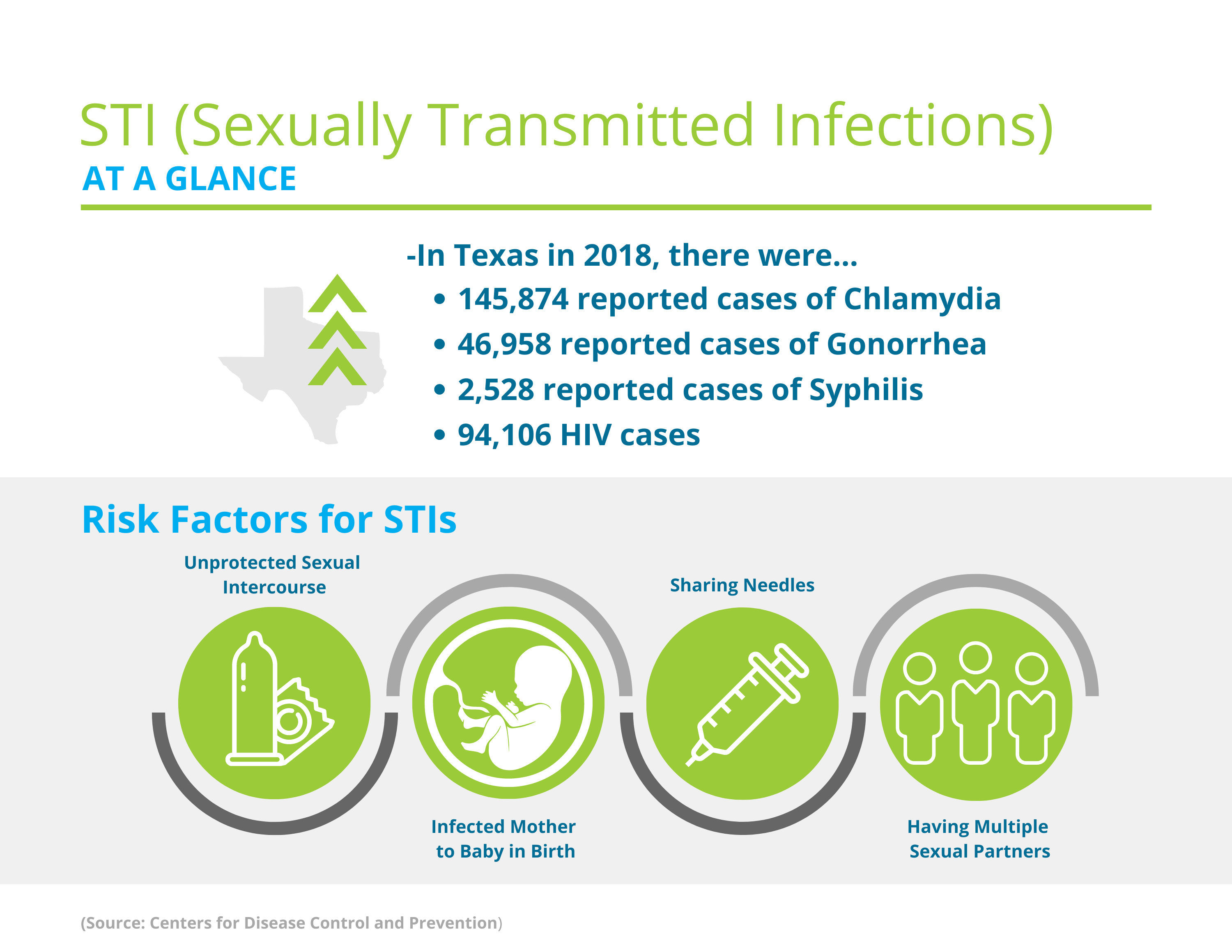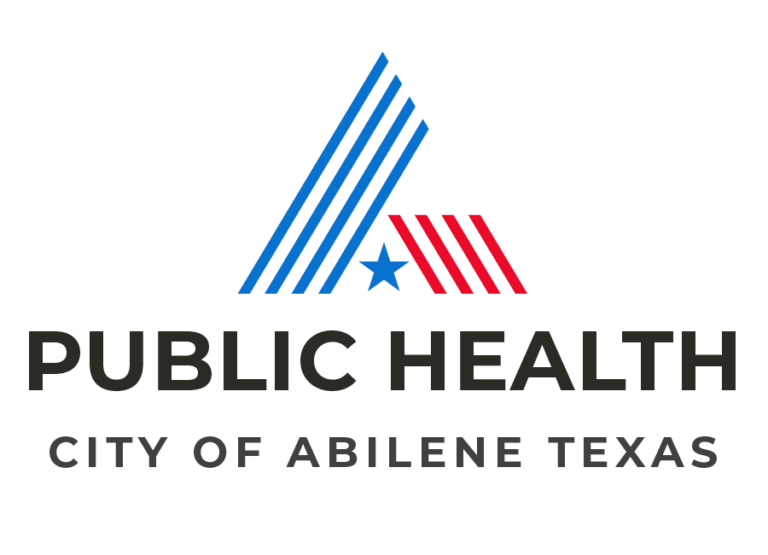
STDs/STIs
Sexually Transmitted Diseases (STDs), also known as Sexually Transmitted Infection (STIs), is a disease/infection spread through a form of sexual intercourse. STDs/STIs can be spread through oral, anal, or vaginal intercourse. STDs/STIs can be spread by and affect every gender. There are many different forms of STD/STIs and we will go over some common ones. However, the list provided is just a select few, and not a total list of STDs/STIs. Each STD/STI is unique and causes specific symptoms, requires specific diagnostics, and may or may not have a cure. Your doctor will discuss symptoms, diagnosis, and treatment that is best fitted for specific STD/STI. There are prevention methods to lower the risk of developing a STD/STI including constant condom usage, knowing sexual partner’s STD/STI current status and history, reducing amount of sexual partners at one time, and regular testing.
For more information: https://www.cdc.gov/std/default.htm
Mercy Health Care Center provides STI education, testing, treatment, and prevention. This testing is free the first Monday of the month, or $20 every other day. Mercy can test for HIV, syphilis, gonorrhea, chlamydia, as well as hepatitis C. Visit their website for more information, hours, and contact information: https://abilenetx.gov/387/Mercy-Health-Care-Center
Chlamydia is known as one of the most common STDs in the U.S. Sometimes chlamydia can cause no symptoms, making it easy to spread. A chlamydia infection is caused by a bacteria that can be passed through genital contact. Chlamydia may also be spread during childbirth from mom to baby. Diagnostic testing for chlamydia is done by either urine sample or swab. Since chlamydia is a bacterial medication, there are oral antibiotics available to treat disease. Some doctors may suggest sexual partners receive treatment as well. The best prevention method for chlamydia is proper condom usage.
More information: https://www.cdc.gov/std/chlamydia/default.htm
Gonorrhea is a sexually transmitted disease that is caused by a bacteria. Gonorrhea can be spread by vaginal, oral, or anal sex. In addition, gonorrhea can be passed from mother to baby during childbirth. Gonorrhea can occur in the rectum, eyes, throat, joints, or genital tract of men and/or women. Diagnostic testing for gonorrhea includes a urine test or a swab in the infected area. Antibiotics are available for a gonorrhea infection. Doctors may suggest that sexual partners get treatment as well.
More information: https://www.cdc.gov/std/gonorrhea/default.htm
Syphilis is a bacterial infection that can be spread via skin contact or contact with syphilis sores. Syphilis can also be spread during childbirth from mom to baby. Generally, syphilis will cause sores on the genitals, rectum, or mouth that can spread. Diagnostic testing for syphilis is most commonly done by a blood sample. However, if there is suspicion that syphilis may have caused nervous system complications, a doctor may choose to do a cerebral spinal test. Common treatment for syphilis is penicillin, however your doctor will recommend the best treatment based on the patient.
More information: https://www.cdc.gov/std/syphilis/default.htm
Human Immunodeficiency Virus (HIV)/Acquired Immunodeficiency Syndrome (AIDS)
A common misconception is that HIV/AIDS are the same thing. However, that is not the case. HIV is a sexually transmitted infection that weakens the immune system. Once the immune system has weakened HIV can progress into severe stage AIDS. Not everyone with HIV is immediately diagnosed with AIDS. HIV can be spread through sexual contact, blood contact, sharing used needles, childbirth, or breast feeding. There are serious consequences from HIV and severe stage AIDS, including death. Diagnostic testing is done through saliva or blood tests. HIV/AIDS is a virus, therefore it can not be cured. There are antiretroviral therapies that can help reduce symptoms, and help prevent progression into AIDS. There is a medication available for individuals at risk for developing HIV, this medication is known as PrEP. Not everyone is eligible to receive PrEP, and a talk with your doctor will determine if PrEP is right for you.
More information: https://www.cdc.gov/std/hiv/default.htm
PrEP information: https://www.cdc.gov/hiv/basics/prep.html
Genital herpes is a sexually transmitted infection caused by a virus. Since this infection is a virus, it can cause reinfections even after a long period of time has passed since initial onset. Genital herpes is passed through oral, anal, or vaginal sex. Genital herpes can also be passed during skin to skin contact, or during childbirth. This infection causes sores that can happen in or on the male/female genital area, buttocks, anus, mouth, and/or urethra. Sores can be painful, however some may not develop symptoms. Diagnostic testing for genital herpes can be done by taking a sample of the tissue at the sore or a blood test. Since genital herpes is a virus, there is no cure. However, there are some antiviral medications that can help reduce symptoms and outbreaks.
More information: https://www.cdc.gov/std/herpes/default.htm
Human Papillomavirus (HPV)
Human Papillomavirus (HPV) is an infection caused by a virus. HPV can be spread through any sexual intercourse, skin to skin contact, or childbirth. HPV causes warts that can occur on the male/female genitals, fingers, heels of feet, legs, or chin. Some HPV can lead to cancer, but not all warts will lead to cancer. There is a HPV vaccine available for both men and women that helps eliminate the onset of HPV and helps prevent the possibility of cancer. Diagnostic testing for HPV includes vinegar solution test, a pap smear, or a swab on infected areas. The vinegar test is done by putting vinegar solution on HPV infected areas. This test is to be performed by medical staff, and not at home. HPV is a viral infection, therefore it can not be cured. However, there is medication available to help remove warts and relieve symptoms. If needed surgery may also be performed to remove warts by a gynecologist.
More information: https://www.cdc.gov/std/hpv/default.htm
HPV vaccine information: https://www.cdc.gov/vaccines/vpd/hpv/public/index.html


